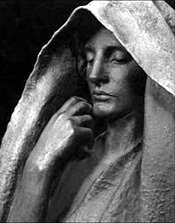
|
||
| |
New
This Week
Everything new is here.
Basics
Start here
Anglicans believe . . .
The Prayer Book
The Bible

News
News Centre
News archive
Newspapers online
Over
to you . . .
Add a site to AO
Tell us what you think
Link to AO
Resources
Resources A to Z, including
Book of Common Prayer
Education
Exchanges
Liturgy
Theology
Vacancies
Youth
and
much more ...
Worldwide
Anglicanism
Anglican Communion
In full communion
Not in the Communion
Dioceses
and Parishes
Africa
Australia
Canada
England
Europe
Ireland
Japan
New Zealand
Scotland
USA
Wales
World
Vacancies
Centre
Look for openings round
the Communion.
Support
Anglicans Online
Sip from an AO mug,
wear our t-shirt, or ...
Make a secure online
donation.
Anglicans Online
Back issues
Staff
Awards and Publicity
Beginnings, AO
today
Sponsors
The five senses we human beings are endowed with all delight and yet constrain. Only through them can we perceive the world—but by them, that perception is limited. We know, for instance, that there are colours of light beyond what we can see, and a range of sounds beyond what we can hear. No doubt there are scents that even the greatest nose in a perfumer's atelier cannot detect. Possibly there are delights in the realm of touch and taste that we earthbound creatures cannot experience.
This week we spent much of our time in hospital watching over Frederic McFarland (he is recovering well from his stroke; thank you all for your prayers). In our vigil there we found ourselves grateful for one further gift not given to human beings: foresight. We do not know what tomorrow will bring—or the next hour, for that matter—and as much as we may abstractly realise that nothing is certain, we still fill up our diaries and make our plans. Indeed, we know of no other way to live.
Those faced with a serious illness must confront the likelihood of a death sooner than they are willing, and in that sense, they know the future. But even the gravest of diseases or injuries does not tell us anything that we don't already know. We know the ending of our story. Death has been written into the plot since that paradisal garden. Yet the most mortally ill or injured must hold out, somewhere, the wispiest drift of hope and the glimmer of miracle. We don't know the hour and date of death's coming, nor what lies beyond.
 We
read somewhere that animals can sense when they are to die and will
behave in various species-specific ways when that time has come. We
thank God that knowledge of our own futures is kept shrouded from
us, for who amongst us could face a panoramic fast-forward of our
lives, unflinching, and carry on?
We
read somewhere that animals can sense when they are to die and will
behave in various species-specific ways when that time has come. We
thank God that knowledge of our own futures is kept shrouded from
us, for who amongst us could face a panoramic fast-forward of our
lives, unflinching, and carry on?
A very few people seem genuinely to have some odd ability to glimpse future events. And at times there seems to be some crack in reality that allows a riddling hint of a future event to be thrown out and caught by the most ordinary person. We are grateful that there are few people with such a gift (or curse?) and fewer occasions when ordinary folk are clairvoyant. When we were young, we played once or twice with a ouija board. In a burst of activity, not goaded by our bored companion, some force or other claimed labouriously, one letter at a time, to be a long-dead relative. Startled and somewhat frightened, we managed one question: 'Are you happy?' The elegiac response was 'Here all men who died loved are happy'. After that, we never played again, a childish decision that we still stand by.
If linear time—chronos, what we call the past, the present, and the future—is a taxonomy we humans impose in and by our brains as a way of ordering the world, we cannot imagine kairos, God's time. We tend to shrug off the complex theological questions that arise when one considers the interplay of prayer and God's will or 'What does God know and when did God know it?' sorts of conundrums. We'll leave those to more relentlessly stubborn theologians and take the not-knowing as one of the most generous gifts of a loving God.
See you next week, most likely. One never knows. Thank God.

|
 |
| Cynthia
McFarland cmcf@anglicansonline.org |
Brian Reid
reid@anglicansonline.org |
Last
updated: 10 November 2002
URL: http://anglicansonline.org/
